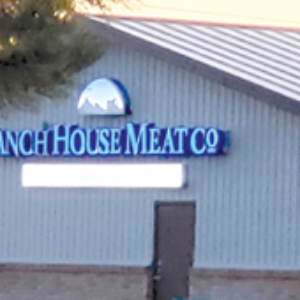Glacier National Park has been investigating several fires tht are suspicious in nature. Several investigators were on the ground, along with the FBI and National Park Service assisting remotely. Portions of the park are closed due to the investigation
The Billings REI store opened last Friday. The Washington-based outdoor retailer closed all its locations across the country in March. That included postponing the opening of the new Billings store at the corner of Shiloh Road and King Avenue West.
Ramsay residents are still fighting to prevent Love’s Travel Stops from locating a truck stop complex next to Interstate 90 about 7 miles west of Butte. Residents say a Butte-Silver Bow Zoning Board decision that went against them bolstered their case. Love’s has purchased land for the truck stop at Ramsay and obtained a DEQ stormwater permit for general construction activities, but other regulatory approvals are still pending. Some Ramsay residents have opposed the project from the start, saying the truck stop will bring traffic, noise, pollution, transients and crime to the community.
Eagle Mount Bozeman and Julius Lehrkind Brewing have teamed up to make a special release beer in support of the local nonprofit. Eagle Mount provides a variety of camps and activities for kids and adults living with disabilities or cancer. Because of COVID-19, the nonprofit has scaled back much of its activities.
Sidewall Pizza Company opened this month in the Emerson Center in Bozeman. The first Sidewall Pizza Company was started in an old tire shop in South Carolina, hence the name, and the Bozeman Sidewall will be the first outside of that state. The menu features a variety of meat and vegetarian pizzas, all with the option of gluten free crust, and salads.
Slow Drift Shuttle Service has opened in Bozeman offering shuttle service for the Madison River and Yellowstone River.
Fishing on the Big Horn River is slowly recovering from a bad spring due to the coronavirus pandemic. Business has reportedly picked up in the past month and is looking better for following months. Many of the cancellations have been rebooked for October
The Bowman family has been growing cherries on the eastern shore of Flathead Lake for five generations. The family business has grown from a single acre of trees to the two-state operation it is today. As Bowman Orchards celebrates 100 years of operation in 2020, the family looks back at a century of ups and downs. As the orchard grew, so did the cherry crop and the family’s success. In 1935 when a harsh early winter storm destroyed the orchard the family dug in and replanted the orchard.
North Dakota airports are beginning to see a rise in passengers coming through terminals. The eight commercial airports saw around 24,000 people flying, including Williston, Minot, Bismarck and Dickinson – which is only 24 percent of the number of passengers in June of last year. Bismarck Airport says each day numbers continue to climb. In June, they saw more than 8,000 passengers– the highest since the pandemic began.
When the coronavirus hit Montana and non-essential businesses closed, Misty Williams, Froid Grocery store owner, took the radical step of closing the front door of her “essential business,” restricting it to phone and Facebook orders and curbside pickup. Instead of shopping the aisles in person, customers “virtually shopped” by looking at photos of the shelves on the grocery’s Facebook page. Williams says the results were astounding as orders increased fivefold.
Beginning July 20, the City of Livingston announced their offices would be closed to the public since there were four or more active cases of COVID-19 in Park County. All persons on staff will remain available via telephone or email. In-person meetings will only be available by appointment.
Gallatin County’s residential real estate market saw an increase in pending sales in June, while days on market, the inventory of available homes and new single-family listings decreased. The median sales price increased 6.7%, from $427,700 in June 2019 to $456,325 in June 2020. The average days on market decreased 3.5%, from 57 to 55. The inventory of available homes decreased compared to last year, from 472 to 364, and the month’s supply of inventory decreased 20%, from 3.5 to 2.8.
Sellers received 98.4% of their list price last month, down slightly from 99% last year. The number of new single-family listings decreased 13.4% compared to June 2019, from 269 to 233. Pending sales jumped 32.9%, from 173 to 230, and the number of closed sales fell slightly by 0.6%, from 171 to 170.
Two-Bit Saloon, The Yellowstone Raft Company, Rosie’s Bistro and Red’s Blue Goose Saloon were destroyed by a fire in Gardner, just six weeks after they were able to open following the COVID mandated closures.




